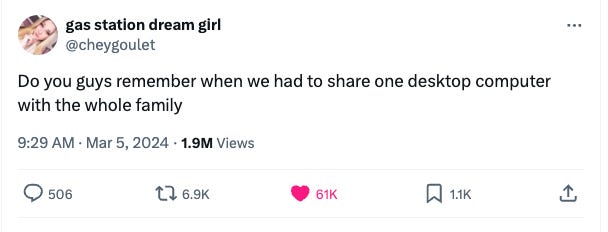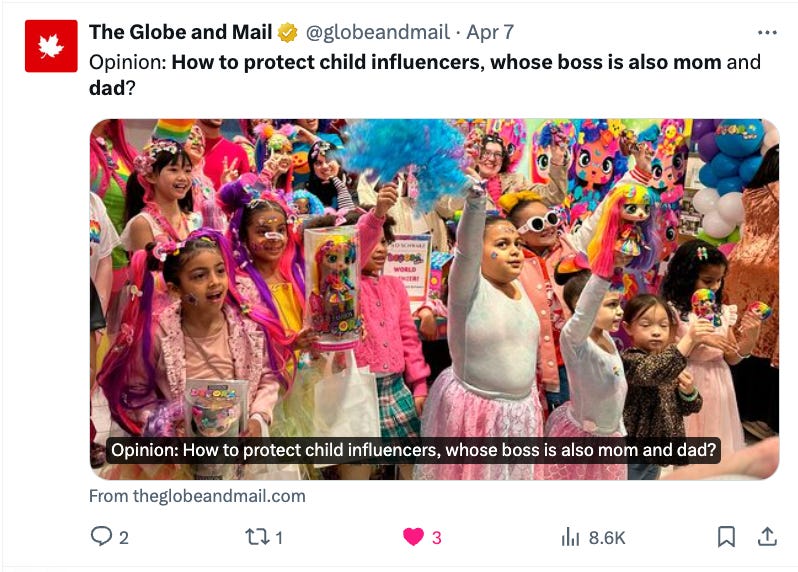⭐ five stars
📻 the feedback economy
The best idea that humans have had to address the inherent information asymmetry of online consumption (whereby the seller knows much more about the quality of the product than the prospective buyer) has been to rely on each other through reviews. Lately, that ubiquitous system of crowd-sourced reviews has been letting us down - big time. A process built on the wisdom of crowds that once held so much promise has now become fantastically polluted; bombarded by bots, randomly weaponized by special interest groups and fans, and gated by companies that want to prevent a negative review from making its way online. The ability of generative AI to compose authentic-sounding reviews has created a battlefield. And yet we continue to rely on reviews when we make decisions about what to buy, where to eat, what to read, and where to go even when we know they are unreliable. Why?
I dig into this in the first episode of “lately,” a new podcast from the Globe and Mail that I’m hosting. This post is a short essay companion, NOT a transcript of the show.
Online reviews began in the late 90s as an echo of blog comments and a way to build comfort with the once radical act of uploading your credit card details to a website. Amazon even briefly employed people to write book reviews on the site to establish credibility. Once trust was established and a new norm emerged, online reviews empowered consumers to make the best possible choice with the information available to them. But it’s beyond time to question the unacknowledged power of this scheme.
As the trustworthiness of reviews has declined, third party review sites like the New York Times’ Wirecutter have emerged as an authoritative antidote. But this journalistic method can be compromised if affiliate marketing deals aren’t disclosed. Plus, remember when Sports Illustrated published AI-generated product reviews under fake author names with fake author biographies? We’ve tried to compensate for the unreliability of reviews, but it doesn’t always work.
Reviews are emotional for shoppers and stressful for businesses. Falsified ones are annoying for platforms. The structure of the feedback economy means that the discoverability of small businesses, artists, and authors hinges on the reviews associated with their work. In December 2020, Etsy sellers were being punished with one-star reviews when their items didn’t ship as quickly as the norm set by Amazon, which caused their shops to plummet in search. In an effort to restore the reliability of reviews and better protect consumers from fabrications, governments are attempting to curb their fakery by relying on the familiar antitrust provisions of false and misleading advertising protections.
The EU has banned fake online consumer reviews, and the UK government recently passed legislation to make it illegal to pay someone to write a fake review, to offer to submit, commission or facilitate one, and to host a review without taking steps to check that it is real. This follows a similar legal ban in Ireland. The FTC is currently taking public input on a proposed rule to ban fake reviews, while Canada’s Competition Bureau recently issued a warning about companies using employees to post fake reviews.
The technology to detect fake reviews is a work in progress. Still, companies have obvious incentives to invest in the trust-worthiness of their platforms. The Coalition for Trusted Reviews unites Amazon, Booking.com, Expedia Group, Glassdoor, Tripadvisor, and Trustpilot in aiming to stop fake reviews at the source. Yelp has started naming and shaming businesses that pay for five-star reviews. TripAdvisor offers a transparency report that discloses the number of reviews removed by automated checks, the number referred to human moderators, and the number that those moderators may approve. Google recently shared that it took down 45% more fake reviews in 2023 thanks to a new algorithm. Amazon has filed lawsuits against actors advertising and selling fake reviews, and has sued the administrators of more than 10,000 Facebook groups that it alleges were coordinating bogus reviews in exchange for money or free products. Trustpilot has implemented measures to detect and prevent fake or biassed reviews, such as using automated systems and human moderators to monitor and verify them. In this way, combating artificial reviews offers a test of online content policing, a space where companies are eager to comply and invest in combating fakeness.
We can take extra care as consumers, installing FakeSpot (by Mozilla) to our web browser and quickly analysing Amazon product reviews to filter out ones that may be unnatural using ReviewMeta. Businesses can get a transparency report to identify reviews that may be fake, and many firms take efforts to ‘verify’ reviews and remove random ones. The vibe very much remains whack-a-mole,but regulators aren’t totally on the sidelines. In December, Montreal-based company AmpMe was fined $1.5M for buying fake reviews. An investigation found that the firm bought positive reviews from third parties to promote its app, and concluded that these reviews created a false or misleading general impression. Given the incentives of glowing reviews for businesses, can we really blame AmpMe for trying?
A US-based academic developed an algorithm to analyse the language of fake reviews after examining how the language used can reveal whether or not the reviewer has actually tried the product. Perhaps this tool could be applied to Temu, which often has 10-110x more reviews than Amazon, almost all of which are five-stars according to analysis from Professor Joe Reagle. The volume of reviews defies logic. It’s theatre now.
At the same time, the activity of writing an actual review is a form of pro bono labour that some engage in as a way to advise strangers or to feel heard. Some do reject reviews and go elsewhere for a gut check on the quality of an item, asking for input on forums like Reddit or Facebook, but there are (of course) already concerns of fakery on Reddit. Even Google scholar is manipulatable - recent research found that citations can be bought in bulk. Review aggregators like Yelp, Goodreads, and Rotten Tomatoes face similar challenges.
This power of people still characterises digital decisions: an honest pledge from a peer has motivated the growth of online influencers, and set a norm for a generation that is predisposed to shop online and heed a referral from someone they follow. Social commerce has lessened the friction of evaluating a prospective purchase, allowing people to quickly click through social media to make a purchase. Yet these referrals are also vulnerable to a lack of disclosure that a recommended item has been gifted or that the recommender receives a portion of the sales that they drive.
Reviews have warped reality at the same time that they continue to shape the digital economy by factoring heavily into search engine optimization (SEO), brand equity, and revenue. The question is whether it’s futile to even try to fight back. Governments can try to enforce more explicit rules against fake and misleading material, companies can make efforts to remove fake reviews, and we can ingest reviews with the grain of salt that they deserve as we try to optimise purchasing decisions. But that may not be enough to stop the deluge of posts deliberately intended to mislead and coax us into clicking on something that sucks. If anything, it’s incredible that we continue to treat the mechanism of reviews as having any credibility at all. In a way, turning consumers into constant critics is maybe the greatest online sham and we’re all complicit. For that, you gotta give the system all five stars, baby.








I came across this article about online product reviews this week and found it super interesting https://housefresh.com/david-vs-digital-goliaths/
Here's some real feedback....... I always enjoy your emails, thanks for doing this!
As I was reading I couldn't help but draw a line between the watering down of online reviews with the watering down of political discourse and voting/democracy more broadly. Mmmmm, yes, I'm noodling on this, thanks again!